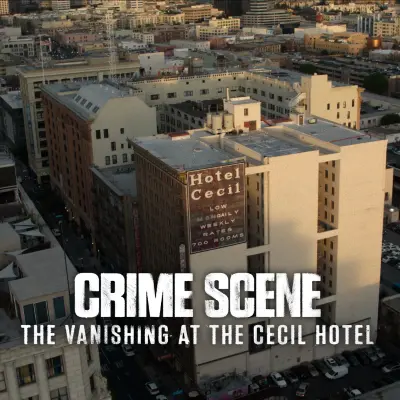Crime Scene: The Vanishing at the Cecil Hotel is bringing true-crime back to its disreputable roots
-

"From podcasts to print, on Reddit and YouTube, there is a vast number of true crime content creators producing anything from long-form investigations to videos that are half stunning make-up tutorial and half murderous deep dive (some of the best examples of multi-tasking I’ve ever seen)," says Jessica Cullen. "And Netflix has unleashed a seemingly endless stream of true crime shows to meet that nearly bottomless demand. In 2020, there was an average of one new notable release each month, and with Night Stalker and Crime Scene released in January and February this year, that streak hasn’t broken yet. (Tune in next month for Murder Among the Mormons.) But in feeding, and stoking, that appetite, Netflix’s true-crime tsunami risks sweeping away the frameworks that true crime authors and fans have spent decades building, and stripping away a layer of respectability that the long-disreputable genre has only recently acquired. Instead of focusing on (Elisa) Lam, Crime Scene ends up spending a vast amount of time with a nearly countless number of interviewees, many of whom are true crime YouTubers and self-styled web sleuths. We see recordings of them visiting the hotel to gawk at the scene of the crime or obsessing over the famous elevator footage, pointing out any strange detail they’ve 'discovered.' Some even believed they had found the murderer, a gothic heavy metal musician whose life was temporarily destroyed by these Elisa Lam obsessives. Of course, there are plenty of true crime creators who research obsessively and can put together engrossing and cohesive content. They’ve even been known to incidentally help solve a case or two. But when does it become a problem if, to make the fanbase feel more involved, people who would otherwise be part of the show’s audience are needlessly inserted into the narrative? In Crime Scene, we’ve become part of what we’re consuming."
TOPICS: Crime Scene: The Vanishing at the Cecil Hotel, Netflix, Documentaries
More Vanishing at the Cecil Hotel on Primetimer:- Only a few of Netflix's true-crime docuseries have been hits of the 21 that have dropped so far this year
- Netflix renews Joe Berlinger's Crime Scene for three more seasons, announces Crime Scene: The Times Square Killer
- Firefly Lane is the No. 1 show on Nielsen's Streaming Top 10 for the second straight week, iCarly debuts as No. 5
- LAPD's hotline has been "ringing off the hook with tips" since Crime Scene: The Vanishing at the Cecil Hotel's premiere
